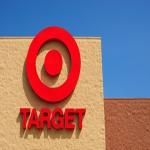Target Severs Ties With Textile Supplier For Mislabeling Products
This entry was posted on September 01, 2016 .

India Manufacturing Company Under Fire After False Labeling of Sheets Businesses have become increasingly pressured to ensure that their products are safely sourced and appropriately labeled. Failing to disclose certain ingredients or details can lead to massive product recalls, whereas incorrectly labeling a good as being something that isn't entirely true can have consequences, including loss of revenue, reputation damage and litigation fees.
However, when it comes to ensuring high ethical standards are met, organizations don't just have their own business to worry about. They must also look to their vendors and partners, as any missteps taken by these parties are ones the company could end up being found liable for.
The importance of managing supplier standards was recently highlighted by Target Corp. The retail giant released a statement explaining that, after conducting an investigation, it discovered one of its suppliers, Welspun Global Brands, violated its contract by selling so-called premium Egyptian sheets, which were actually made with non-Egyptian cotton.
In its press release, Target explained that the vendor "was one of the producers of Egyptian Cotton 500-thread count sheets under the Fieldcrest label for Target." Furthermore, the retailer has already started to issue refunds to customers who purchased the product and has removed it from store shelves.
According to The Wall Street Journal, Welspun is concerned that other retail customers - which include Wal-Mart Stores Inc., J.C. Penney Inc. and Macy's Inc. - will end their partnership agreements with it as well.
The Importance of Proper Product Labeling Of course, many businesses aren't dealing with as high stakes as Target and Welspun are. However, this example demonstrates the kind of damage that can impact both your organization as well as your stakeholders when products are marketed or labeled with claims that aren't 100 percent truthful.
When you're creating labels, regardless of the scale and scope of your business, it is paramount to ensure that every piece of content included can be verified. Consumers today are becoming more skeptical about the honesty of companies, with many demanding more transparency and tighter regulations. Brands that use - or partner with other organizations that do - deceiving or misleading tactics in the manufacturing, production, packaging, marketing or selling of their products are likely to learn that the consequences of dishonest labeling are not worth the short-term, potential benefits doing so may provide.
Request your FREE instant quote today.

 Custom Labels
Custom Labels  Custom Beverage Labels
Custom Beverage Labels  Custom Lip Balm Labels
Custom Lip Balm Labels  Custom Warning & Safety Labels
Custom Warning & Safety Labels  Perfume Bottle Labels
Perfume Bottle Labels  Bumper Stickers
Bumper Stickers  Custom Prop 65 Warning Labels
Custom Prop 65 Warning Labels  Custom Stickers
Custom Stickers